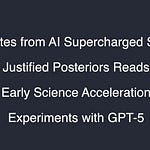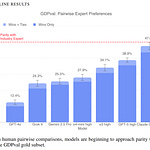In this episode, we discuss Artificial Intelligence Technologies and Aggregate Growth Prospects by Timothy Bresnahan.
We contrast Tim Bresnahan's paper on AI's impact on economic growth, with Daron Acemoglu's task-replacement focused approach from the previous episode.
Bresnahan argues that AI's main economic benefits will come through:
Reorganizing organizations and tasks
Capital deepening (improving existing machine capabilities)
Creating new products and services rather than simply replacing human jobs
We discuss examples from big tech companies:
Amazon's product recommendations
Google's search capabilities
Voice assistants like Alexa These demonstrate how AI creates value through new capabilities rather than just replacing existing human tasks.
Other parts of Bresnahan's analysis:
AI works best with "low stakes" decisions where false positives aren't costly
Modularization of tasks is important for AI adoption
Capital deepening through continuous improvement of existing AI systems
Prior Beliefs:
Andrey: 20% task replacement, 80% other effects
Seth: Initially 30-50% task replacement, moved closer to Bresnahan's view after discussion
Other considerations raised:
Many AI benefits may not be captured in GDP measurements
The distinction between task replacement and reorganization can be unclear
We conclude by considering more transformative AI scenarios, questioning whether the task-based model remains useful for analyzing more advanced AI capabilities.













